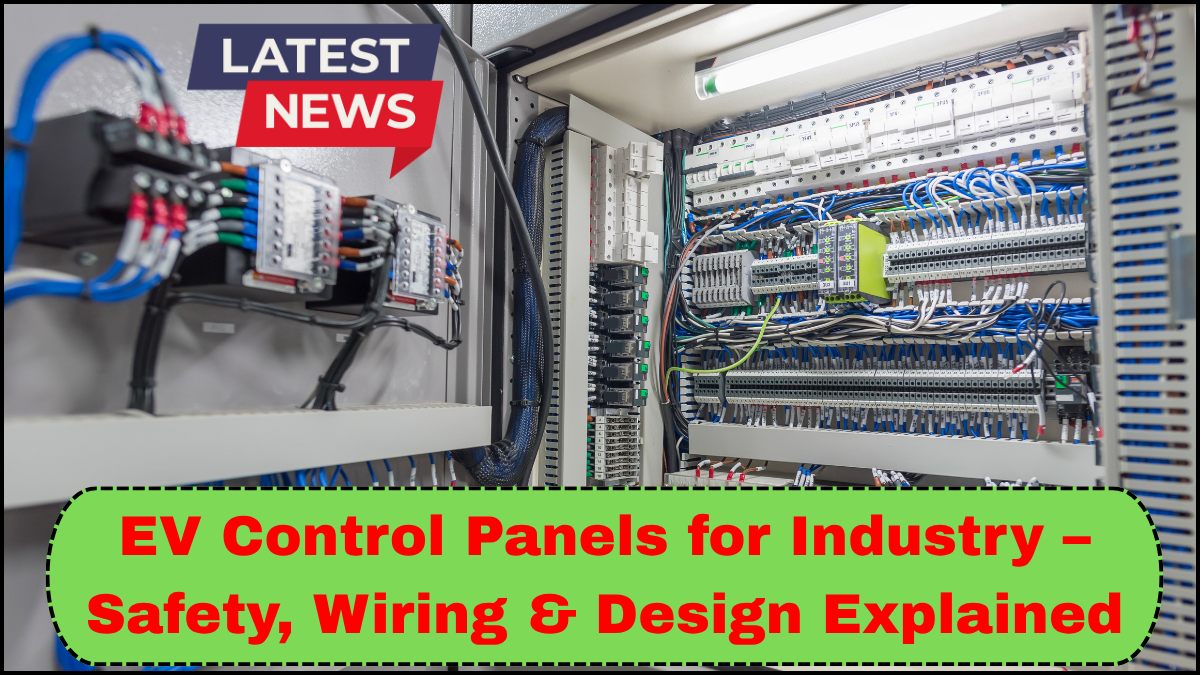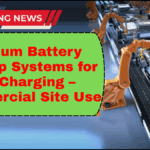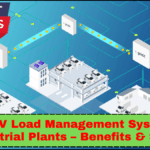As industries shift toward electrification and cleaner energy solutions, Electric Vehicle (EV) technology is not limited to just transport fleets. EV control panels are becoming critical infrastructure in factories, logistics hubs, commercial facilities, and large-scale charging networks. These panels form the backbone of EV charging systems, and their safety, wiring, and design must meet rigorous industrial standards.

What Are EV Panel Boards?
EV panel boards are specialized electrical control systems designed to manage the distribution of power to EV chargers. They serve as centralized units where the incoming electrical supply is regulated, protected, and directed to multiple charging stations. These panels include components like breakers, contactors, relays, and sometimes smart monitoring devices.
In industrial settings, EV panel boards go beyond just power delivery. They must integrate with existing electrical infrastructure, support high-load equipment, ensure worker safety, and often connect to IoT-based monitoring platforms.
Key Safety Considerations
Safety is paramount when designing or installing an industrial EV panel board. The high voltage and current demands of EV charging require strict adherence to standards set by bodies such as the National Electrical Code (NEC), IEC, and UL.
1. Overcurrent Protection
Industrial-grade EV control panels should include circuit breakers and fuses rated appropriately for the expected load. Overcurrent protection helps prevent fires, equipment damage, and electrical faults.
2. Grounding and Bonding
Proper grounding ensures any fault current is safely directed into the earth. Bonding all conductive parts reduces shock hazards and is a requirement for industrial compliance.
3. Enclosure Ratings
In dusty, wet, or hazardous environments, enclosures must meet IP or NEMA standards. NEMA 4X or IP66 enclosures, for example, provide protection against moisture, corrosion, and particulates.
4. Emergency Disconnects
Industrial sites often require a clearly labeled, easily accessible emergency disconnect for every panel. This allows workers to shut down power quickly in case of malfunction.
Wiring Design and Best Practices
Proper wiring is critical to the performance and longevity of EV panel boards. Industrial environments demand durable and efficient cabling systems.
1. Conductor Sizing
Cable sizes must match the current loads and distances involved. Undersized wires can lead to voltage drops and overheating.
2. Segregated Wiring Channels
Control wiring (signals and communication) should be separated from power wiring to reduce electromagnetic interference (EMI).
3. Color Coding and Labeling
Wiring should follow standardized color codes and be clearly labeled. This simplifies maintenance and improves troubleshooting.
4. Flexible Conduit Use
In dynamic environments, using flexible conduit protects wiring from mechanical stress and vibration.
Smart Design Considerations
Industrial EV panel boards are not just passive electrical boxes. They are evolving into smart, integrated systems capable of dynamic load management and data collection.
1. Modular Architecture
Modular designs make it easier to scale operations as more EVs are added to the fleet. Adding new circuits should not require a complete redesign.
2. Load Balancing Features
To avoid overloading the electrical infrastructure, modern EV control panels include load balancing. This ensures chargers operate within site capacity limits.
3. Remote Monitoring
Through embedded sensors and communication modules, operators can monitor voltage, current, temperature, and usage patterns remotely. This allows predictive maintenance and reduces downtime.
4. Integration with Building Management Systems (BMS)
Advanced EV panels can feed data into BMS for coordinated energy usage, helping with demand response and energy efficiency targets.
Compliance and Standards
Every EV panel board installed in an industrial setting must comply with local and international codes. These include:
- NEC Article 625 for EV supply equipment
- UL 891 for switchboards
- IEC 61439 for low-voltage switchgear
Consulting certified electrical professionals and engineers is critical in meeting these regulations and ensuring long-term operational safety.
Frequently Asked Questions (FAQ)
What is the role of an EV control panel in an industrial facility?
An EV control panel distributes and manages electrical power to multiple EV chargers, ensures safety, and integrates with the site’s broader electrical control system.
Can EV panel boards handle fast charging stations?
Yes. Industrial-grade EV panel boards are designed to support high-power DC fast chargers, but must be properly sized and cooled.
How do I ensure compliance with safety standards?
Follow NEC, UL, and IEC standards, and always consult licensed electricians and engineers during planning and installation.
Are smart EV panels worth the investment?
Absolutely. Smart panels allow load management, remote diagnostics, and data integration, which are essential for scalable and efficient industrial EV operations.
click here to learn more



